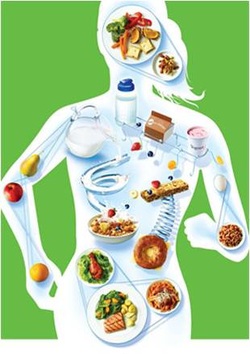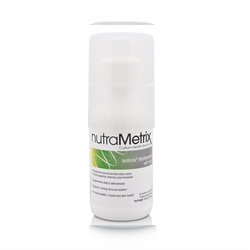
The truth is, our bodies are well equipped to produce all the hormones a woman needs throughout her life. So why do so many women experience hormonal imbalances? This is due to the fact that these hormones can be thrown off kilter from an abundance of stress, consuming an unhealthy diet or lack of physical activity. These lifestyle factors leave room for a wide variety of hormonal disorders to present their ugly head.
What are hormones?
Hormones are proteins or steroids that are secreted naturally into your bloodstream. They are responsible for the body's metabolism of nutrients and minerals, regulation of fluids, reproductive health, sexual function, and regulate your stress response.
The endocrine system produces hormones in women and includes glands such as the pituitary, hypothalamus, thyroid, parathyroid, pancreas, adrenal cortex and medull, and ovaries.
What are the most common hormonal disorders in women?
The most common of all the hormal disorders among women is polycystic ovarian syndrome (PCOS), which has been found to affect approximately 7 percent of women. Many cases go undiagnosed or are misdiagnosed as other hormonal imbalances, so it is estimated that as many as one in 10 women may be affected.
PCOS is a syndrome, meaning it has numerous componenets to it. Two-thirds of women with PCOS are overweight and most are insulin resistant. Symptom include:
- Unusually severe acne
- Rapid weight gain and/or trouble losing weight
- Unusual body hair growth (face, chest, back)
- Irregular or absent periods
- Darkened skin patches
Although the cause of PCOS remains unknown, researchers are finding there seems to be a connection with obesity, genetics and insulin production. It has been shown that lifestyle changes, such as eating a healthy diet and exercising regularly, are "prescribed" for patients with PCOS. Those who follow through with these recommendations have seen profound improvements, and even remission, of many or all of their symptoms.
It is critical that any woman found to have PCOS be put on a nutrition support protocol that emphasizes improving insulin sensitivity and controlling insulin levels. This means eating small, frequent meals (eating within the 1/2 hr of waking and every 3 hrs or so), limiting or avoiding processed foods, and including lean protein with each meal and snack during the day. It is also recommended that patients include a high quality multi-vitamin and mineral supplement to help normalize glucose, insulin, and leptin metabolism. It is common for doctors to prescribe birth control pills and fertility drugs to help with symptoms, but I encourage natural remedies such as diet, exercise and natural supplementation as the first step to improving symptoms. Learning how to eat a healthy diet and include exercise as part of your life is the only way to truly cure PCOS - taking the medications will only be a temporary solution and/or you'll have to take them for the rest or your life.
Thyroid Dysfunction
It has been found that over 20 percent of menopausal women in the U.S. are diagnosed with thyroid dysfunction, while other studies suggest that millions more may be suffering from subclinical problems, but remain undiagnosed.
Hypothyroidism, which is a sluggish or "underactive" thyroid, affects most women. Symptoms include:
- Fatigue
- Weight gain
- Depression
- High cholesterol
Hyperthyroidism, which is an overactive thyroid, also affects women in the opposite manner. A woman with hyperthyroidism may experience the following:
- Weight loss, often with an increased appetite
- Anxiousness
- Trouble sleeping
- Irritability
- Feeling overheated
Research shows that hormone imbalances, often caused by stress and nutritional deficiencies, are what trigger thyroid disease. Perimenopause, menopause and pregnancy are times during a woman's life when hypothyroidism may occur due to the body being more prone to hormonal imbalance. For individuals with hypo or hyperthyroidism, it is important to follow a nutrition protocol that focuses on supporting the endocrine system by balancing female hormones.
Adrenal Fatigue
On the top of each of your kidneys are your adrenal glands, which act as control centers for a host of hormones. One of their most important functions is to prepare your body for the "fight or flight" stress response, where your body increases the amount of adrenaline and other hormones released into your bloodstream. This normal bodily response increases your heart rate and blood pressure, naturally slows your digestion and protects your body when you're faced with a potential threat or challenge.
This response, while needed and naturally occurring, can negatively impact us in other ways. The fact is, many of us are constantly faced with stressors such as worry, anxiety, work, environmental toxins, not getting enough sleep, over exercising, etc.), which means we are in this "fight or flight" mode for far too long!
Why is this a problem? Because your adrenal glands become overworked and fatigued - just like your muscles do when you exercise for extended periods of time. This leads to adrenal dysfunction with the following symptoms:
- A suppressed immune system (getting sick frequently)
- Muscle and bone loss (at risk for osteoporosis and other bone disorders)
- Depression
- Overall fatigue and weakness
- Skin problems
- Autoimmune disorders
How Do you Combat Adrenal Fatigue?
- Reduce stress in your life or practice stress management/relaxation techniques
- Eat a balanced, nutrient-dense diet including fresh fruits, vegetables, lean proteins, healthy fats and whole grains
- Get adequate sleep and/or improve sleeping habits - go to bed and wake up at the same time each day, avoid watching t.v. in bed or right before you go to bed, create a dark sleeping environment, keep a note pad by your bed to write down anything that comes to mind when you wake up, avoid caffeinated beverages late in the day, avoid eating meals/snacks close to bed time, etc.
Questions? Feel free to contact me: (802) 999-5684
Healthy wishes!
Alissa




 RSS Feed
RSS Feed
